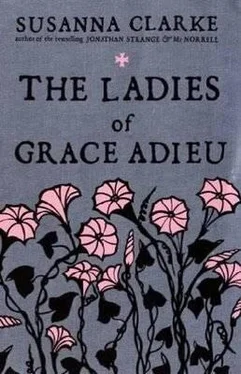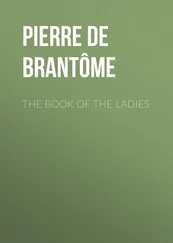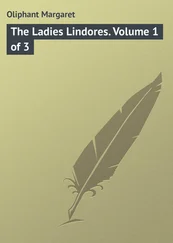
Susanna Clarke
The Ladies of Grace Adieu
by Professor James Sutherland, Director of Sidhe Studies, University of Aberdeen
I have approached this collection with two very modest aims in mind. The first is to throw some sort of light on the development of magic in the British Isles at different periods; the second is to introduce the reader to some of the ways in which Faerie can impinge upon our own quotidian world, in other words to create a sort of primer to Faerie and fairies.
The title story, "The Ladies of Grace Adieu", falls into the first category, with a poignant depiction of the difficulties faced by female magicians during the early nineteenth century – a time when their work was simply dismissed by their male counterparts (here amply represented by Gilbert Norrell and Jonathan Strange). The events of the story were referred to in a somewhat obscure novel published a few years ago. Should any readers happen to be acquainted with Jonathan Strange and Mr Norrell Bloomsbury, London, 2004), then I direct their attention to a footnote in chapter 43 which describes how Jonathan Strange went to some trouble to extract his clergyman brother-in-law from a living in Gloucestershire and get him a different living in Northamptonshire. "The Ladies of Grace Adieu" provides a fuller explanation of Strange's rather enigmatic actions.
"On Lickerish Hill" and "Antickes and Frets" both describe the somewhat easier, less fraught relationship with fairies and magic which our English and Scottish ancestors once enjoyed.
"Mr Simonelli or the Fairy Widower" is an extract from the diaries of Alessandro Simonelli. Simonelli is, of course, a monstrously irritating writer; at every turn he displays the conceit and arrogance of his race. (And I am talking here of the English and not of anyone else). An editor is advised to approach his diaries with caution. Simonelli published them first in the mid-1820s. Twenty years later he revised them and published them again. He did the same thing in the late 1860s. Indeed throughout the nineteenth century and early twentieth century his diaries and memoirs were being continually rewritten and brought out in new editions; and at each stage Simonelli reworked his past in order to promote his latest obsession – whether that be ancient Sumerian history, the education of women, the improvement of Sidhe (fairy) morals, the provision of bibles for the heathen or the efficacy of a new sort of soap. In an attempt to circumvent this problem I have chosen an extract from the first edition which describes the beginning of Simonelli's extraordinary career. We can but hope that it bears some sort of relation to what actually happened.
In the years that followed Waterloo dealings between the Sidhe (fairies) and the British increased. British politicians debated the "Fairy Question" this way and that, but all agreed it was vital to the national interest. Yet if these stories demonstrate nothing else it is the appalling unpreparedness of the average nineteenth-century gentleman when he accidentally stumbled into Faerie. The Duke of Wellington is a case in point. Women do seem to have fared somewhat better in these perplexing circumstances; the heroine of "Mrs Mabb", Venetia Moore, consistently demonstrates an ability to intuit the rules of Faerie, which the older and more experienced Duke is quite without.
"Tom Brightwind or How the Fairy Bridge Was Built at Thoresby" remains a tale replete with interest for the student of Faerie. However I see no reason to revise my earlier assessment of the story given in 1999 (and deserving, I think, to be more widely known). The reader will find it prefacing the tale itself.
I have chosen to finish with a story from that wonderful writer, John Waterbury, Lord Portishead. Apart from the period 1808-1816 when he was under the thumb of Gilbert Norrell, Waterbury 's writings and in particular his retelling of old tales of the Raven King are a continual delight. "John Uskglass and the Cumbrian Charcoal Burner" is an example of that genre of stories (much loved by the medievals) in which the rich and powerful are confounded by their social inferiors. (I am thinking here of the tales of Robin Hood or the ballad, "King John and the Abbot of Canterbury"). In medieval Northern England no one was richer or more powerful than John Uskglass and consequently Northern English folklore abounds with tales in which Uskglass tumbles down holes in the ground, falls in love with unsuitable ladies or for various complicated and unlikely reasons finds himself obliged to cook porridge for harassed innkeepers' wives.
The sad truth is that nowadays – as at all periods of our history – misinformation about Faerie assails us from every side. It is through stories such as these that the serious student of Sidhe culture may make a window for herself into Faerie and snatch a glimpse of its complexity, its contradictions and its perilous fascinations.
James Sutherland
Aberdeen , April 2006
The Ladies of Grace Adieu
Above all remember this: that magic belongs as much to the heart as to the head and everything which is done, should be done from love or joy or righteous anger.
And if we honour this principle we shall discover that our magic is much greater than all the sum of all the spells that were ever taught. Then magic is to us as flight is to the birds, because then our magic comes from the dark and dreaming heart, just as the flight of a bird comes from the heart. And we will feel the same joy in performing that magic that the bird feels as it casts itself into the void and we will know that magic is part of what a man is, just as flight is part of what a bird is.
This understanding is a gift to us from the Raven King, the dear king of all magicians, who stands between England and the Other Lands, between all wild creatures and the world of men.
From The Book of the Lady Catherine of Winchester (1209-67), translated from the Latin by Jane Tobias (1775-1819)
When Mrs Field died, her grieving widower looked around him and discovered that the world seemed quite as full of pretty, young women as it had been in his youth. It further occurred to him that he was just as rich as ever and that, though his home already contained one pretty, young woman (his niece and ward, Cassandra Parbringer), he did not believe that another would go amiss. He did not think that he was at all changed from what he had been and Cassandra was entirely of his opinion, for (she thought to herself) I am sure, sir, that you were every bit as tedious at twenty-one as you are at forty-nine. So Mr Field married again. The lady was pretty and clever and only a year older than Cassandra, but, in her defence, we may say that she had no money and must either marry Mr Field or go and be a teacher in a school. The second Mrs Field and Cassandra were very pleased with each other and soon became very fond of each other. Indeed the sad truth was that they were a great deal fonder of each other than either was of Mr Field. There was another lady who was their friend (her name was Miss Tobias) and the three were often seen walking together near the village where they lived – Grace Adieu in Gloucestershire.
Cassandra Parbringer at twenty was considered an ideal of a certain type of beauty to which some gentlemen are particularly partial. A white skin was agreeably tinged with pink. Light blue eyes harmonized very prettily with silvery-gold curls and the whole was a picture in which womanliness and childishness were sweetly combined. Mr Field, a gentleman not remarkable for his powers of observation, confidently supposed her to have a character childishly naive and full of pleasant, feminine submission in keeping with her face.
Читать дальше













